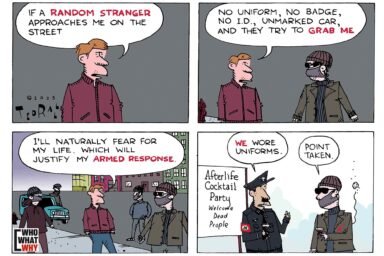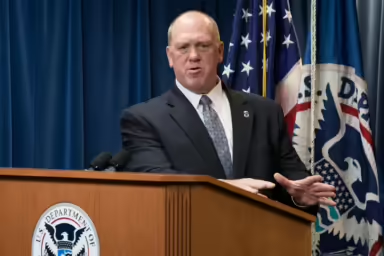Brazilian-American director Alexandre Moratto’s film ‘7 Prisoners,’ now streaming on Netflix, shows how human trafficking can corrupt an entire society.
|
Listen To This Story
|
“Human trafficking” is the current euphemism for a $150 billion global industry that traps victims unable to defend themselves and forces them to work against their will.
If we exclude prostitution and the sex industry, what we are really talking about here is old-fashioned slavery, albeit slavery that is adapted to fit the modern world. In his compelling film, 7 Prisoners, now streaming on Netflix in Portuguese with English subtitles, Brazilian-American director Alexandre Moratto shows exactly how and why this diabolical process works.
Moratto’s story begins when an entrepreneur offers seven teenagers in an impoverished Brazilian village a chance to work in Sao Paulo. With a population of more than 12 million people, Sao Paulo is not only the dynamic center of Brazil’s economy but also the largest urban conglomeration in the southern hemisphere.
“Do you see that?” their employer, Luca, tells the new recruits, who are clearly dazzled by Sao Paolo’s glistening skyscrapers and labyrinthian highways. “You are the ones who make all this possible.”
Any dreams the boys might have had begin to fade when they arrive at a junkyard where they are expected to break down old equipment for scrap, strip copper wire, and recycle waste.
Mateus, who is Black, emerges as the brightest member of the group. After Luca demands the group’s passports, mobile phones, and identity cards, Mateus objects that he needs to see a contract. “Later,” Luca responds.
When Mateus protests and threatens to walk off the job, Luca takes out a pistol and threatens to shoot anyone who objects. The boys realize they are prisoners.
From that point on, it is obvious that the state is behind Luca. There is no escape.
It takes some time for the reality of the situation to sink in. Mateus urges them to play along with Luca until he can figure a way out.
“I was like you,” Luca tells Mateus. “I had no money, but I saw how things are, and look where I am now.” Luca tells him to keep the others in line, and Mateus effectively becomes their jailer.
When one of his friends tries to run away, Mateus catches him and brings him back. “Don’t be a fool,” he says. “They will kill your family.”
When one of the group does manage to run away, he is brought back — this time by uniformed police. From that point on, it is obvious that the state is behind Luca.
After the politician who owns the junkyard promotes Luca to work as an enforcer for an upcoming political campaign, Luca suggests that Mateus come along as his right-hand man. Mateus asks about his friends. “They are where they are,” Luca responds, ”Do you want to stay here with them or come with me?”
A limousine arrives to take Luca away, and Luca gestures to Mateus. He hesitates for an instant, then climbs in. His career in Brazilian politics has just begun.
Alexandre Moratto was born and educated in the US. His father, an American, and his mother, a Brazilian, divorced early on, and he grew up speaking mostly Portuguese at home. His mother had extended family in Sao Paulo, and Moratto spent part of his high school years there.
After high school, Moratto began studying film at the University of North Carolina School of the Arts in Winston-Salem, NC. His lucky break came when Iranian-American director Ramin Bahrani, who grew up in Winston-Salem, visited the campus looking for interns. Moratto signed on, and with Bahrani’s support and training, he eventually made his first film, Socrates, which starred Christian Malheiros as a young boy driven to live on the streets when his mother dies. Malheiros also plays Mateus in 7 Prisoners.
One of the advantages of Moratto’s 7 Prisoners is that the film enables us to look at the actual dynamics of how and why slavery functions, independent of the emotions resulting from America’s own history with slavery.
Slavery in America
America didn’t invent slavery. It industrialized it, and its supporters did their best to make it an integral part of the country’s economy. There is a tendency today to think that slavery — in North America at least — ended with emancipation and the Civil War. It didn’t. The shape-shifting monster simply changed form.
No longer allowed to chain slaves, Southern states instituted sharecropping. By denying African Americans the right to an education, redlining neighborhoods to keep Black people from buying homes there, and making it nearly impossible for them to compete for well-paying jobs, the Southern states, in particular, were able to substitute poverty for the chains that had previously imprisoned African Americans.
The latest form is mass incarceration. An enormous number of poor people — a high percentage of them Black — run afoul of the justice system, sometimes for minor infractions, failure to pay a fine, or trumped-up legal fees. They find themselves in prison, a growing number of which have been outsourced to private companies, and are then given the option of working to fulfill contracts that the system has outsourced to other private companies.
Of course, Black Americans aren’t the only victims. At the turn of the century, the US imported thousands of immigrants from Europe who subsequently found themselves forced to work in sweatshops because they had no other alternative. Today, it’s undocumented immigrants from Latin America, whom Congress refuses to legitimize and then looks the other way when they are forced to live in impossible conditions and work for starvation wages.
Moratto’s film 7 Prisoners doesn’t concern itself with those aspects of human trafficking. What interests the filmmaker is pure, old-fashioned slavery and how it works. The film’s equally important insight concerns what slavery does to the society that permits it to exist. Both Luca and Mateus begin as human beings with an inborn sense of humanity, but they become corrupted when they find that cooperating with their oppressive overseers is the only way to survive. The result is a society condemned to perpetuate evil until it finally disintegrates or is overthrown.
Brazil is not alone. In 2012, the International Labor Organization (ILO), headquartered in Geneva, Switzerland, estimated that at least 21 million people are currently trapped in servitude as forced labor, generating an estimated $150 billion in profits for private companies and state entities. The ILO estimates that private households avoid spending around $8 billion a year by engaging domestic staff under forced labor conditions.
The French have an expression: Plus ça change, plus c’est la même chose — The more things change, the more they stay the same.





